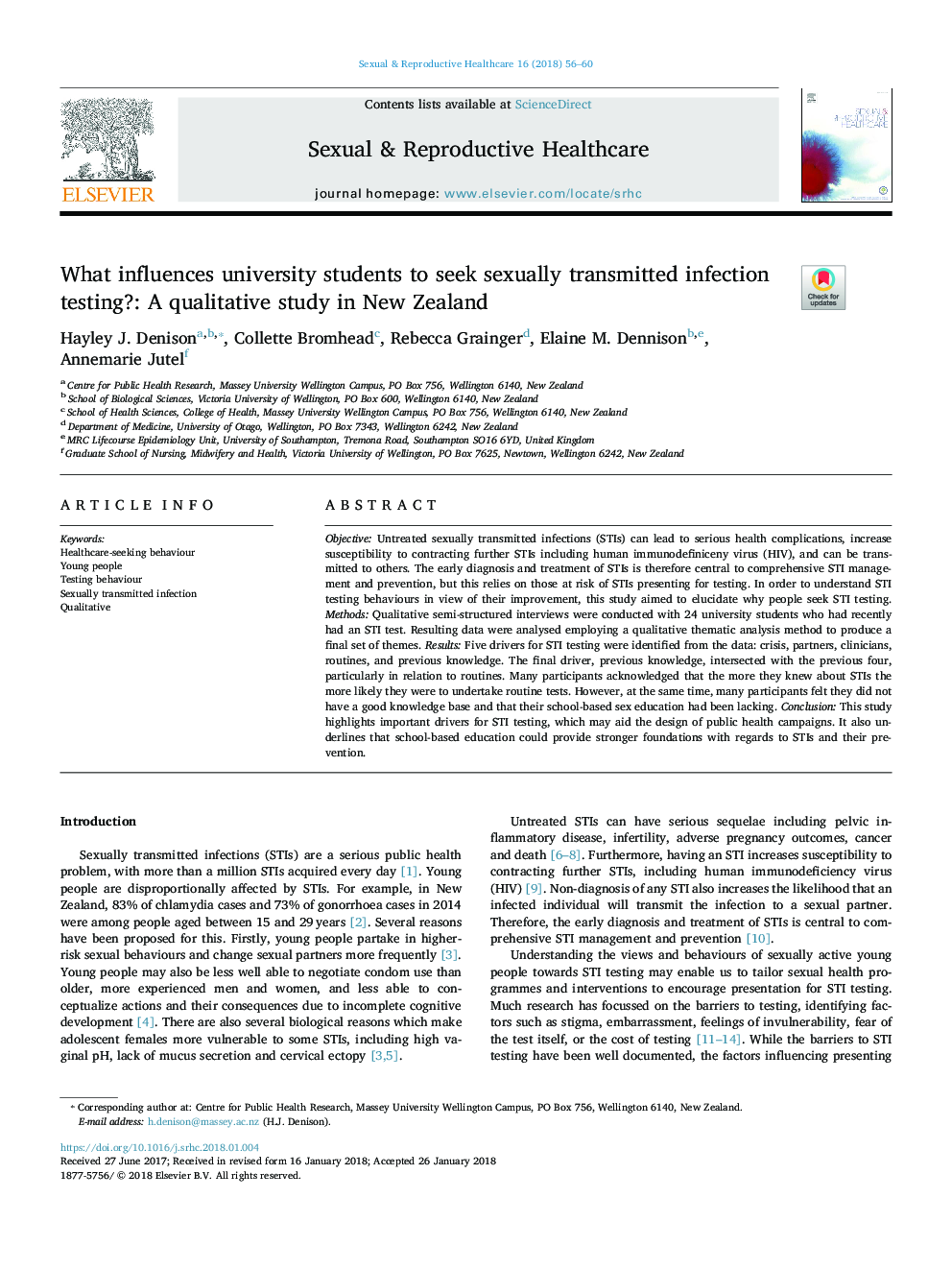| Article ID | Journal | Published Year | Pages | File Type |
|---|---|---|---|---|
| 8565773 | Sexual & Reproductive Healthcare | 2018 | 5 Pages |
Abstract
Objective: Untreated sexually transmitted infections (STIs) can lead to serious health complications, increase susceptibility to contracting further STIs including human immunodefiniceny virus (HIV), and can be transmitted to others. The early diagnosis and treatment of STIs is therefore central to comprehensive STI management and prevention, but this relies on those at risk of STIs presenting for testing. In order to understand STI testing behaviours in view of their improvement, this study aimed to elucidate why people seek STI testing. Methods: Qualitative semi-structured interviews were conducted with 24 university students who had recently had an STI test. Resulting data were analysed employing a qualitative thematic analysis method to produce a final set of themes. Results: Five drivers for STI testing were identified from the data: crisis, partners, clinicians, routines, and previous knowledge. The final driver, previous knowledge, intersected with the previous four, particularly in relation to routines. Many participants acknowledged that the more they knew about STIs the more likely they were to undertake routine tests. However, at the same time, many participants felt they did not have a good knowledge base and that their school-based sex education had been lacking. Conclusion: This study highlights important drivers for STI testing, which may aid the design of public health campaigns. It also underlines that school-based education could provide stronger foundations with regards to STIs and their prevention.
Related Topics
Health Sciences
Medicine and Dentistry
Obstetrics, Gynecology and Women's Health
Authors
Hayley J. Denison, Collette Bromhead, Rebecca Grainger, Elaine M. Dennison, Annemarie Jutel,
